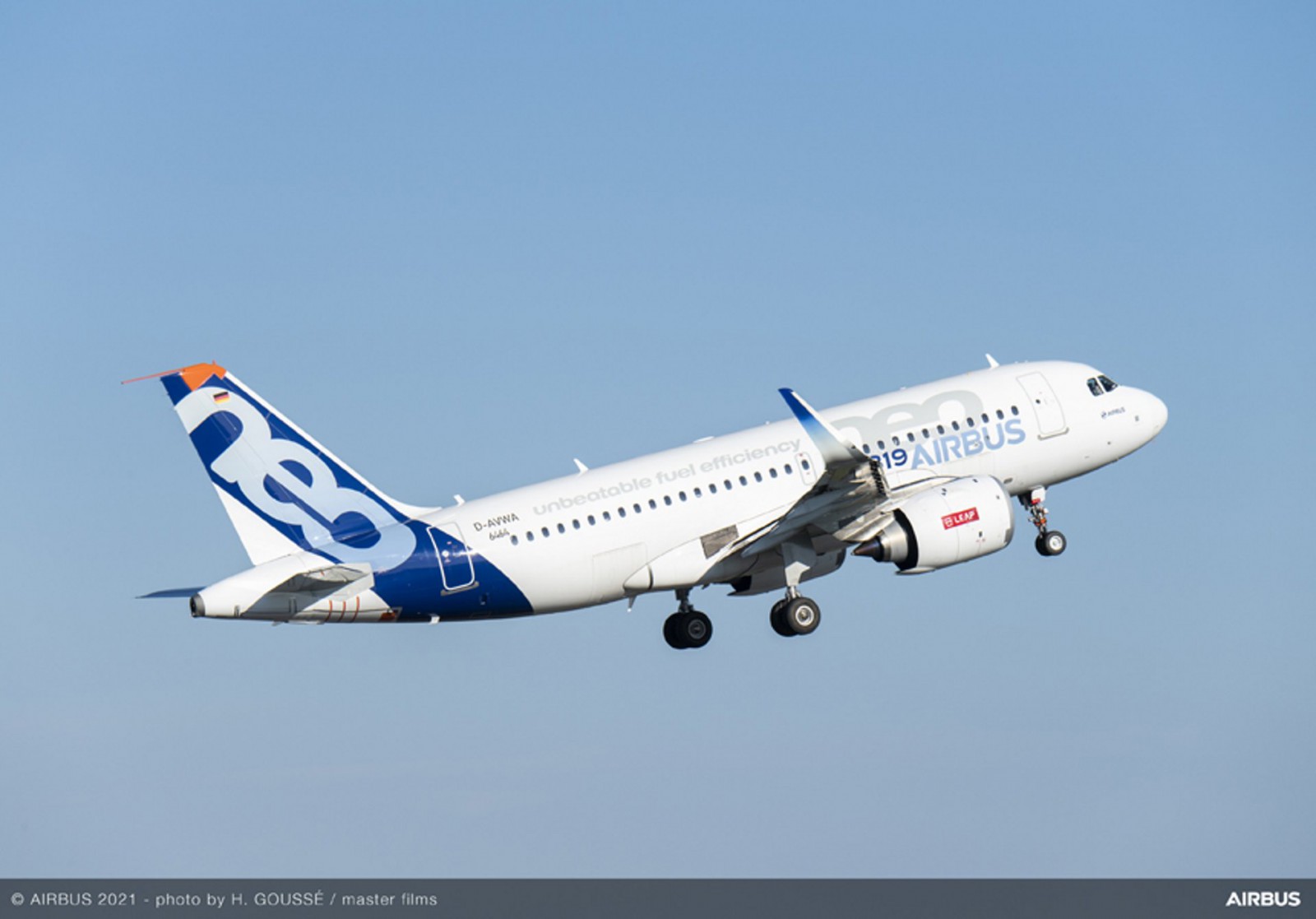Airbus tests 100% sustainable fuel on A319neo
02 November, 2021
2 min read


Real-world experience using 100% sustainable aviation fuel (SAF) has taken another step forward with the first inflight study involving a single-aisle aircraft.
The flight was conducted last week by Airbus using an A319neo over its hometown of Toulouse.
READ: First Emirates A380 to be recycled.
Conducted in conjunction with Dassault Aviation, ONERA, the French Ministry of Transport and Safran, the October 28 flight featured one CFM LEAP-1A engine running on 100% SAF.
Airbus said its goal was to promote the large-scale deployment and use of SAF, and certification of 100% SAF for use in single-aisle commercial aircraft and the new generation of business jets.
The unblended SAF from Total Energies was made in Normandy from hydroprocessed esters and fatty acids (HEFA) from used cooking oil and other waste fats.
HEFA is made of paraffinic hydrocarbons and is free of aromatics and sulfur. Manufacturers are keen to see how these differences affect engines and fuel systems.
Airbus said some 57 tonnes of SAF would be used for the test campaign, the results of which are due to be released in 2022.
The 100% SAF will also be utilized next year for compatibility and engine operability studies on the Safran Helicopters Arrano engine used on the Airbus Helicopters’ H160.
Airbus, in collaboration with the German Aerospace Center (DLR), will analyze the impact of 100% SAF on ground and in-flight emissions while Safran will focus on compatibility studies related to the fuel system as well as engine adaptation and optimization.
Safran will perform LEAP engine ground tests at its Villaroche facilities later this year to complete the analysis.
ONERA is supporting Airbus and Safran in analyzing the compatibility of the fuel with aircraft systems and will be in charge of preparing, analyzing and interpreting test results for the impact of 100% SAF on emissions and contrail formation.
Dassault Aviation is contributing to the material and equipment compatibility studies and verifying 100% SAF biocontamination susceptibility.
The European manufacturer said the study, known as VOLCAN for VOL avec Carburants Alternatifs Nouveaux, would contribute to global decarbonization efforts currently underway across the aeronautical industry.
Get the latest news and updates straight to your inbox
No spam, no hassle, no fuss, just airline news direct to you.
By joining our newsletter, you agree to our Privacy Policy
Find us on social media
Comments
No comments yet, be the first to write one.

